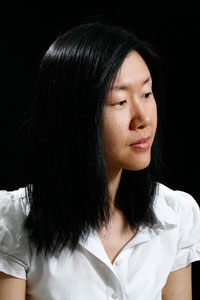
Cheating on an examination is a severe offence at every school and, when caught, offending students face a range of penalties and will lose credibility in the eyes of many.
Two weeks ago, a university student caused uproar on social media with a post about her argument with a person she had paid to take an online exam for her, but who did not produce a satisfactory result.
An earlier post by the for-hire exam taker had included the student's real name and a picture along with an accusation the student did not pay the agreed amount. The exam taker also threatened to sue.
According to the student's post, she was studying abroad and having problems with one subject. She claimed that the lecturer was poor at teaching it and, despite her second attempt on the subject, she still found it hard to understand, further describing the subject as not useful in real life.
Not wanting to flunk the exam for a second time, she decided to use a service found on Twitter. The service provider agreed to take on the job and guaranteed a passing grade.
However, the service's exam taker couldn't finish all the questions and produced a score of only 56 out of 115, or 48%, while a passing grade requires at least 50% completion.
The student asked for a test retake, promising to pay once a passing grade was obtained. However, her request was turned down and the service demanded that she pay the money right away, claiming that the job had been completed as the previous score was equivalent to 50% based on its own calculation.
In her post, the student explained that after the unresolved negotiation, which was undertaken very late at night, she went to bed only to realise the next morning she'd been humiliated on social media.
She eventually paid for the service despite the unsatisfactory result and considerable distress caused, later posting a picture of a payment receipt and saying that she had indeed paid for her own stupidity, and wanted now to warn everyone off the service.
Her story drew a lot of criticism from netizens, most chastising her and the service for being part of an organised cheating racket. While some warned her of the risk of expulsion from university and told her to study harder, many also questioned if she would be someone qualified and suitable for work after graduation.
This kind of practice is nothing new among students. But, what worried me most is the student didn't seem to be genuinely ashamed of what she did. I'm afraid that she might one day end up landing in further trouble like many other cheating students.
Anyway, I wasn't surprised she was cheated out of money herself. I only hope she has learned from this the important lesson that you can't trust people providing a dishonest service to be honest in their dealings with you. She should also accept it will be difficult to gain the trust of others if they know of her previous dishonesty.
This matter reminded me of the university plagiarism and ghostwriting revelations earlier this year, which caused much concern about academic fraud in our country.
Among those accused were two academics, one at Chiang Mai University the other at Chulabhorn Royal Academy, who were accused of purchasing authorship of dozens of research papers and even claiming reimbursement from the government.
Since the exposure of malfeasance by academics, all universities have been ordered to run a check on their lecturers to see if any have purchased academic papers.
This might seem rather insulting to academics, but it's understandable considering the fact that this service is readily available in many countries and easily accessible.
We're living in a world where we can buy the right to be listed as co-first author of a paper for which we did not write a word. Interestingly, it's the very same world where promotion in the academy depends heavily on the number of publications and which journals they've appeared in.
This poses a challenge for some lecturers and professors pursuing career advancement. They may have to decide between the slow but principled method of making a name through their own efforts, or pursuing an unethical shortcut that may one day ruin them.
I only hope that all academics have the wisdom to make the right choice.
Patcharawalai Sanyanusin is a writer for the Life section of the Bangkok Post.
